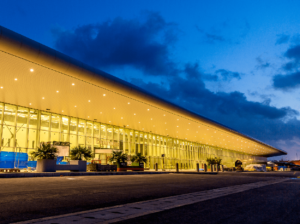
Dar es Salaam. Makamu wa Pili wa Rais wa Zanzibar, Hemed Suleiman Abdulla amesema Uchumi wa Zanzibar umekua kutoka asilimia 5.1 kutoka mwaka 2021 hadi asilimia 7.5 mwaka 2024.
Mbali ya uchumi pia pato la taifa (GDP) limeifikia Sh6.28 trilioni mwaka 2024 kutoka Sh4.2 trilioni mwaka 2020.
Ameyasema hayo wakati akiwasilisha utekelezaji wa ilani ya Chama cha Mapinduzi (CCM) ya uchaguzi wa mwaka 2020 upande wa Serikali ya Mapinduzi ya Zanzibar katika siku ya pili ya Mkutano Mkuu Maalumu wa Chama Cha Mapinduzi (CCM) Taifa, leo Jumapili, Januari 19, 2025 jijini Dodoma.
“Kwenye eneo la elimu, bajeti Wizara ya Elimu imeongezeka kutoka Sh265 bilioni mwaka fedha 2021/22 hadi kufikia Sh830 mwaka 2024/25 sawa na ongezeko la asilimia 212.6 kupitia bajeti hiyo,” amesema.
Abdulla amesema kutokana na ongezeko la bajeti hiyo skuli mpya 116 zenye madarasa zaidi ya 2,773 zikiwemo skuli 35 zenye ghorofa zikiwa na ofisi za walimu, maabara za kisasa, kumbi za kufanyia mikutano zilizopo mijini na vijijini.
Amesema uimarishwaji wa mazingira ya elimu kuanzia ngazi ya msingi, sekondari hadi vyuo umefanya kiwango cha ufaulu kuongeka kwa wanafunzi wa Zanzibar.
Akizungumzia upande wa sekta ya afya, amesema bajeti imeongezeka kutoka Sh177 bilioni mwaka wa fedha 2021 hadi Sh496 mwaka 2024. Amesema Serikali imekamilisha ujenzi wa hospitali 10 za wilaya na moja ya rufaa ya Mkoa wa Mjini Magharibi.
“Sekta ya Maji Serikali imepeleka huduma ya maji safi na salama kote. Serikali imechimba visima 102 na kujenga matanki ya ujazo wa lita milioni 144 takribani 25, na kulaza mabomba yenye urefu wa km785.9,” ameainisha.
Amesema pia huduma ya umeme imeendelea kusambazwa katika visiwa vya Unguja na Pemba huku Seirkali ikifikisha huduma hiyo katika vijiji 222 sawa na zaidi ya asilimia 72.
“Aidha gharama za kuunganisha umeme zimepungua kutoka Sh464,000 hadi Sh200,000 kwa wateja wasiozidi urefu wa mita30,” amebainisha.
Amesema kwa upande wa utalii mchango wake katika pato la taifa imefikia asilimia 30, huku idadi ya watalii ikiongezeka kutoka 260,644 mwaka 2020 hadi kufikia 736,755 mwaka 2024 sawa na ongezeko la asilimia 183.
“Filamu ya The Royal Tour iliyoongozwa na Rais Samia Suluhu Hassan imechangia kuongezeka watalii, pia uboreshwaji wa miundombinu, mawasiliano na uwekezaji wa hoteli za kisasa,” amebainisha Makamu huyo wa pili wa Rais Zanzibar.
Source: mwananchi.co.tz












